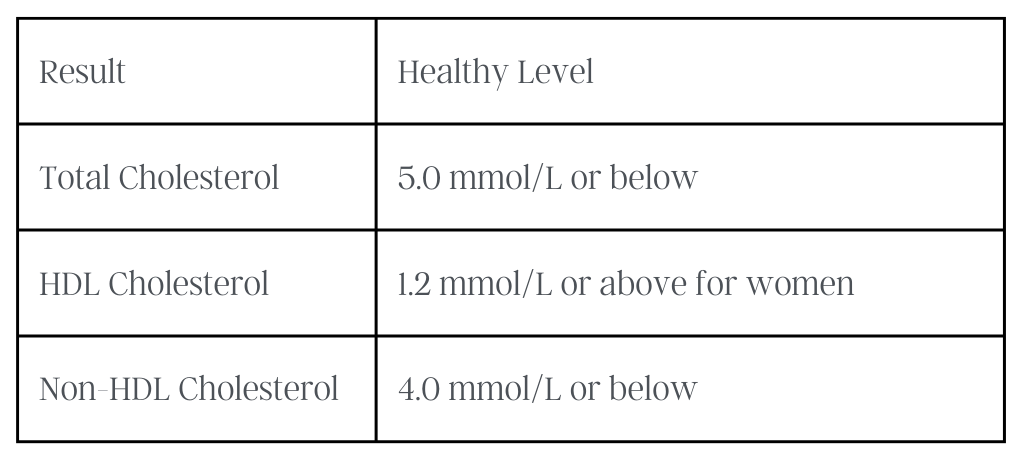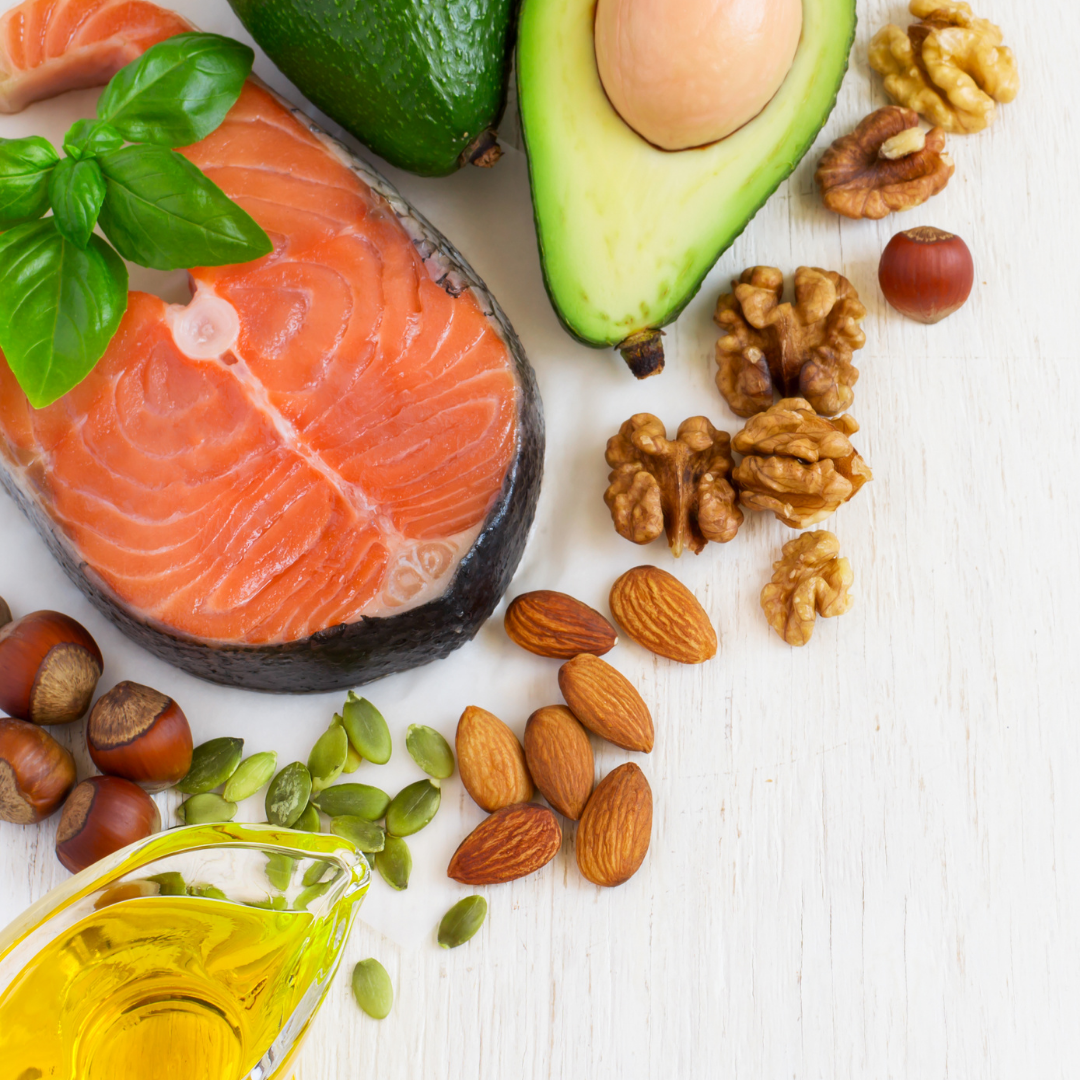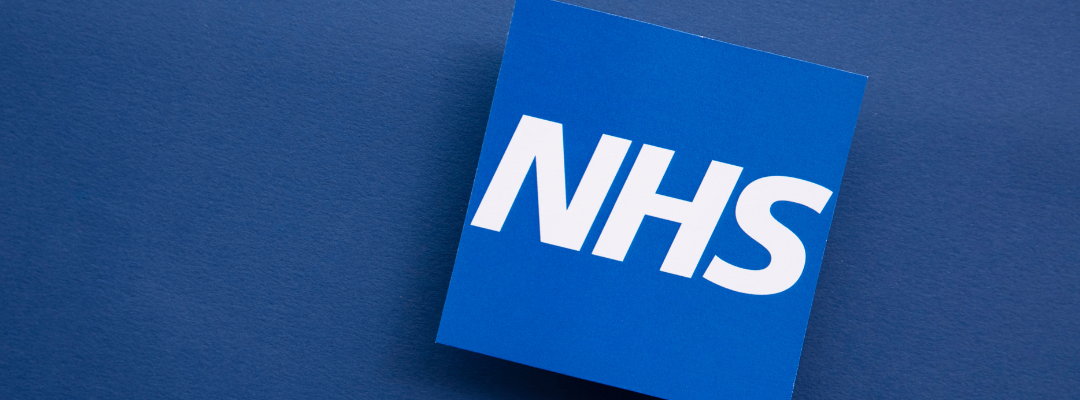
Managing Cholesterol Levels with Lifestyle Changes at Menopause
High cholesterol is just one of many risk factors for developing heart disease, which is a health condition affecting the heart and blood vessels. However, many women don’t consider cholesterol levels or heart health before menopause, given that prior to this they carry a lower risk for these than men.
What is cholesterol?
Cholesterol is a type of fat found within the body. Yet, despite its bad reputation, everyone needs a certain level of cholesterol to maintain good health. Cholesterol is essential for maintaining cell health, and is involved in the production of both vitamin D and bile (1).
Cholesterol becomes a concern when levels in the blood are too high, specifically a type known as low density lipoprotein cholesterol (LDL cholesterol).
How do I know if cholesterol levels are too high?
A blood test is required to determine if cholesterol levels are too high. The test may also show results for another type of fat known as triglycerides, which is essential for good health, but can similarly cause problems in excessive quantities.
What are the different types of cholesterol?
Different types of cholesterol include:
LDL cholesterol
This is known as bad cholesterol because if levels become too high it builds up as fatty deposits in blood vessels. This process is known as atherosclerosis and can restrict blood flow to organs.
High density lipoprotein cholesterol (HDL cholesterol)
This is known as good cholesterol because it carries bad cholesterol away from body cells, and towards the liver for removal from the body.
Non-HDL cholesterol
This includes all types of cholesterol that aren’t HDL cholesterol, such as LDL cholesterol and very low-density lipoprotein cholesterol, which isn’t good for health in high amounts.
Total cholesterol
The overall amount of all types of cholesterol in the blood.
The table below shows proposed healthy ranges for each type of cholesterol (2).

What can cause cholesterol levels to increase?
Many factors can affect cholesterol levels – both controllable and non-controllable.
One risk factor we can’t control is the decline of the hormone oestrogen with menopause. Oestrogen has a cardioprotective role in the body, helping to keep cholesterol levels within their ideal range. However, this cardioprotective benefit is lost (3) with declining hormones at menopause.
Other risk factors we can’t control include ageing, family history, and particular ethnicities such as South Asian or sub-Saharan African backgrounds (3,4).
Risk factors we can control include smoking, excessive consumption of alcohol, low levels of physical activity, being overweight or obese, and a generally poor diet.
How can I manage cholesterol levels?
It’s important to speak with a health professional about how to manage high cholesterol levels. They will discuss the most effective plan of action for you.
In some instances, medication such as statins may be recommended. Simple lifestyle changes may also be encouraged, which for some people can have a positive impact on cholesterol levels.
It’s important to note that if you have the genetic disorder ‘familial hypercholesterolemia’, lifestyle changes alone won’t manage this health condition. However, it’s still important to maintain a healthy, balanced diet.
What lifestyle changes can help manage cholesterol?
The following changes can all offer cholesterol lowering benefits.
Include cholesterol lowering foods in your diet
Certain foods have an evidence base that suggest regularly including them in your diet, in the correct quantities, can have cholesterol lowering effects. These foods include soya, oats, almonds, and other foods with added plant stanols and sterols (5).
Plant stanols and sterols have a similar structure to cholesterol, and can block the absorption of cholesterol in the body (6). Consuming between 1.5-2.4g plant stanols and sterols has been shown to lower cholesterol by 7-10% in 2-3 weeks (7).
Plant stanols and sterols can be found in a range of products, including yoghurt drinks, yoghurts, and spreads.
Swap saturated fats for unsaturated fats
Saturated fats found in cakes, biscuits, pastries and red meat are associated with increased levels of LDL cholesterol. Research shows swapping saturated fats for unsaturated fats helps to lower LDL cholesterol – for example:
- Swapping red meat for oily fish
- Using an olive oil based spread instead of butter on toast
- Snacking on a handful of nuts instead of a bag of crisps
The polyunsaturated fat omega 3 is particularly recognised for its heart friendly properties and just one portion of oily fish each week, such as salmon or mackerel, can have a significant beneficial effect.

Increase fibre intake
Soluble fibre found in beans, oats, nuts and seeds has been shown to reduce cholesterol absorption in the body. Fibre also helps keep us fuller for longer, which can help with weight management efforts. Being overweight and obesity are both risk factors for high cholesterol levels.
Adults should aim for a fibre intake of 30g/day, which can be achieved from fruit, vegetables, wholegrains, beans, lentils, nuts and seeds.
Move more
Regular exercise helps to lower LDL cholesterol and increase HDL cholesterol, as well as helping with weight management (8, 9).
Simply adding in 10-15 minutes walking each day, building distance and pace over time, can help with cholesterol management and look after your heart health.
In summary
Although menopause brings an increased risk of high cholesterol levels, there are many lifestyle factors that can help to reduce this risk, from reviewing daily diet intake, to adding more steps to the day.
References
- https://www.heartuk.org.uk/cholesterol/what-is-cholesterol
- https://www.nhs.uk/conditions/high-cholesterol/cholesterol-levels/
- https://www.heartuk.org.uk/cholesterol/causes
- https://www.bhf.org.uk/informationsupport/risk-factors/high-cholesterol
- https://www.heartuk.org.uk/ultimate-cholesterol-lowering-plan/uclp-step-3
- https://evermade-benecol-multisite-website.s3.eu-north-1.amazonaws.com/wp-content/uploads/sites/5/2023/09/07055200/BEC01250_Benecol_Patient_Pack_A5booklet_UK_Aug23_web-1.pdf
- https://www.heartuk.org.uk/healthy-living/approved-products
- https://www.heartuk.org.uk/healthy-living/exercise
- https://www.nhs.uk/conditions/high-cholesterol/how-to-lower-your-cholesterol/
www.harleystathome.com | Instagram @harleystreetathomemenopause
Facebook: Search Harley Street at Home: Diagnosis, Symptoms & Treatments or Harley St at Home: Lifestyle, Self-Care and Lifestyle to join our private community


